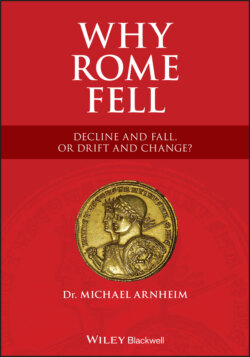Читать книгу Why Rome Fell - Michael Arnheim - Страница 6
About the Author
ОглавлениеDr Michael Arnheim (commonly known as “Doctor Mike”) is a practicing London Barrister, Sometime Fellow of St. John’s College, Cambridge, and author of 23 published books to date, this being the twenty-third.
Born in Johannesburg, South Africa, to a German father and South African mother, he attended the prestigious King Edward VII School. As a 14-year-old schoolboy he was picked to join the “Quiz Kids” team of five capped and gowned teenagers appearing every Friday evening on South Africa’s Springbok Radio, of which he became a stalwart member, “retiring” at the age of eighteen.
He entered Johannesburg’s University of the Witwatersrand at the age of 16, taking a first-class B.A. in History and Classics at the age of 19, first-class Honours in Classics at 20 and an M.A. with distinction at the age of 21.
Michael Arnheim then went up to St. John’s College, Cambridge, on a National Scholarship (later converted to a St. John’s College scholarship, supplemented by a Strathcona Travel Exhibition). He was awarded a Cambridge Ph.D. in 1969 in record time, and in 1972, his doctoral dissertation was published by the Oxford University Press under the title of The Senatorial Aristocracy in the Later Roman Empire. In the meantime, he was elected into a Fellowship of St. John’s College, Cambridge, where he combined research with a great deal of teaching for a number of colleges in Classics and Ancient History.
At the age of 31, Michael Arnheim was invited to take up the position of full Professor and Head of the Department of Classics back at his old university in South Africa. During his time in that position, he devised a new system of learning Latin, for which he wrote a series of Latin stories titled The Adventures of Marcus. He also taught his students Spanish under the title of “Modern Latin,” using etymological links with English, along the lines later described in Gateway English: How to Boost your English Word Power and Unlock New Languages (2020.).
Despondent about the future of South Africa, Dr Arnheim returned to Britain, where he was called to the Bar by Lincoln’s Inn in 1988, combining his practice of law with the writing of books (23 to date)—a combination that is still continuing.
Arnheim’s books essentially belong to three main categories: history, religion, and law. His legal studies and practice soon made him aware of the injustice inherent in English law, resulting at least partly from what Lord Neuberger, the former President of the UK Supreme Court, had the courage in 2017 to describe as “a notable degree of disarray and a marked lack of reliable principle” in the whole vast field of the law of Tort. Arnheim’s legal writings have tackled this serious but veiled problem with suggested practical solutions.
Arnheim also has an original take on religion—a classification of all religions, ancient and modern alike, as either “communal” or “creed” religions. Christianity and Islam, the two largest religions in the world today, are “creed” religions, based on a creed or set of beliefs. However, in the ancient world most religions, including the Roman “pagan” state religion, were “communal.” Membership of a particular community, society or nation carried with it automatic membership of that community’s religion. Everyone in a communal religion understood that every communty, society or nation has its own religion. So, communal religions are by definition tolerant—while creed religions are naturally intolerant. Every creed religion—and every denomination, grouping or sect of every creed religion—is based on a set of beliefs, which is taken to be “the truth.” Anyone who does not accept this creed is a “heretic,” a “pagan,,” or an “unbeliever,” and is punished accordingly. The dominance of Christianity in the later Roman Empire marked a sea-change in Roman and world history—the substitution of religious intolerance and persecution for toleration and freedom of worship.
This transformation is a major theme of the present book—together with a shift in the power structure, particularly in the West, an issue that has engaged Arnheim’s interest since his undergraduate days, when he developed an original comparative analytical approach to history covering multiple societies spanning over three millennia, from early Greece to the present day. Focusing particularly on the power structure of these disparate societies, Arnheim developed the hypothesis that, regardless of outward appearances, all societies, past and present alike, belong to only one of two models of government: rule by an elite minority (oligarchy, morphing to aristocracy) on the one hand, or, on the other, rule by a single individual, or monarchy (whether the ruler is designated as king, president, dictator, or anything else.) This issue is pursued in the present book. The significance of power structure, a much neglected aspect of history, lies in its value as an analytical tool, and in its relationship to social mobility, liberty and equality.
For further information on Michael Arnheim, you may consult the Wikipedia article on him at en.wikipedia.org/wiki/Michael_Arnheim. You are also welcome to contact him by email at Counsel@arnheim-law.com.
